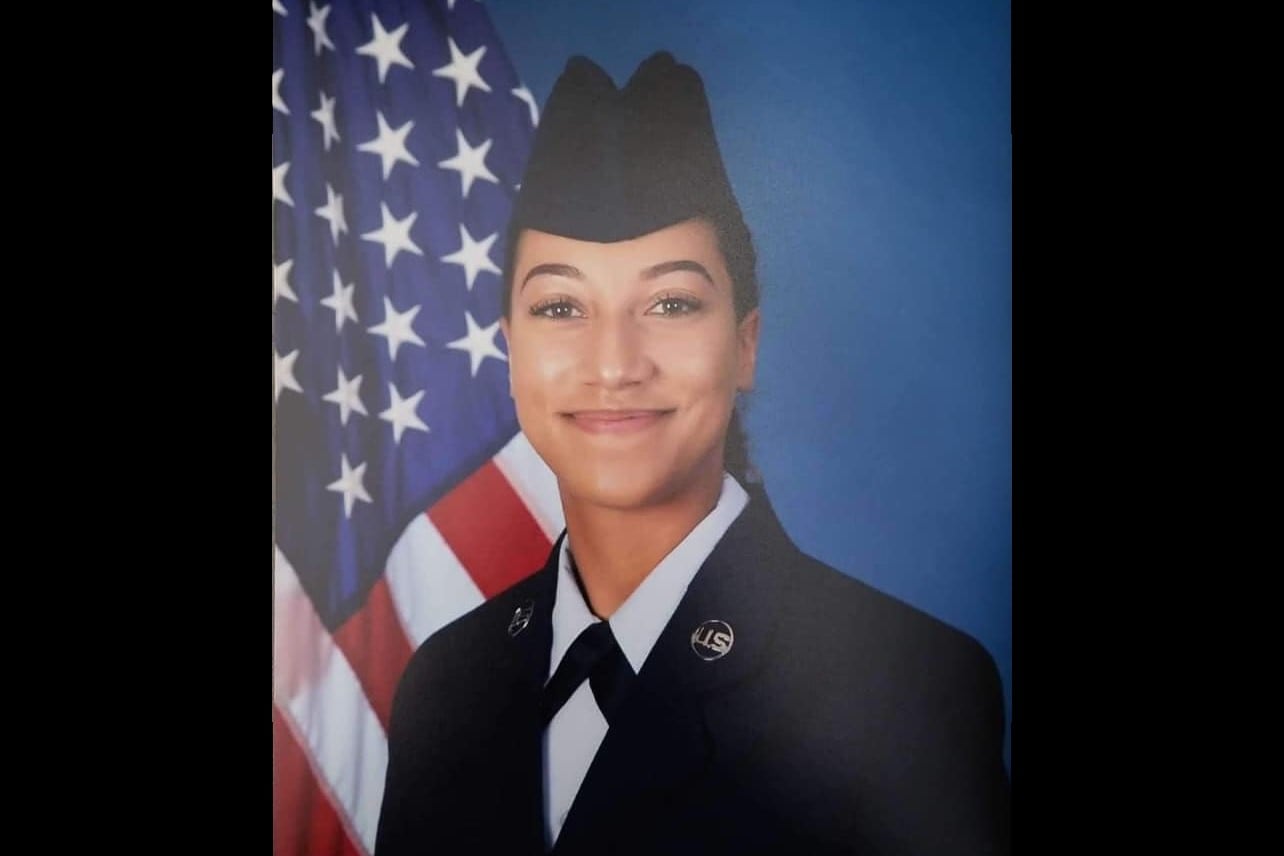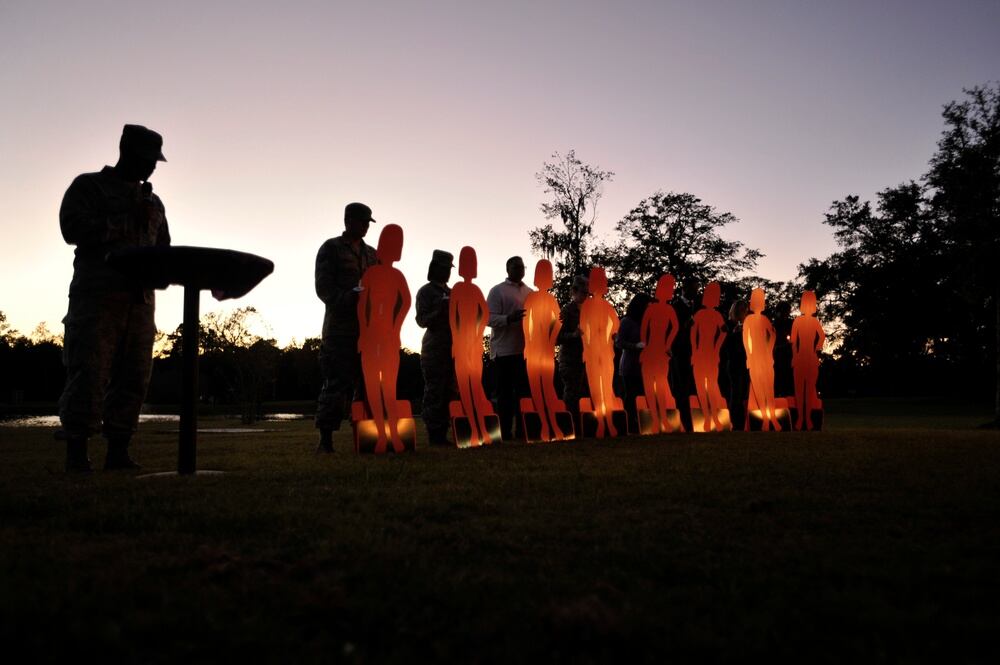Nearly 37,000 Department of the Air Force employees say they have experienced a form of psychological or physical violence in the past two years, from belittlement to assault, according to the results of a new study released Tuesday.
An in-house task force created in 2020 put out a survey last fall to better understand the range of harm that comes to airmen and guardians at home and in the workplace. It garnered responses from around 10 percent of the Air Force and Space Force’s military and civilian personnel, or 68,000 people.
“We gained vital insight into how we can better protect and support our people, no matter where their experience falls along the spectrum of violence,” Air Force Undersecretary Gina Ortiz Jones said in a release.
RELATED

More than half of the respondents said they had recently dealt with an intimate partner or another person who was violent, workplace harassment, bullying or hazing. That includes two-thirds of women and about half of men who answered the survey, the Air Force said. Respondents most often reported dealing with workplace bullying, at 36 percent of those polled, Vogel said.
Those incidents of violence, harassment, bullying and hazing largely went unreported up the chain of command or to civilian or military law enforcement, data showed. Only 40 percent of people who said they were hazed in the past two years reported it to authorities, and that was the highest reporting rate among the 81 behaviors that were considered.
Of those who provided their rank, younger officers saw slightly higher levels of conflict than those who reached major and above. Older enlisted airmen reported the opposite, with staff sergeants and above seeing more instances of interpersonal violence than among lower-ranking members.
While officials warned against extrapolating the figures across the entire force, “the numbers are big enough that we need to take this incredibly seriously and act,” Air Force Secretary Frank Kendall told reporters on a call Tuesday.
However, he cautioned that dependents were a significant blind spot for the review. Spouses and other dependents were not asked to take part in the survey or discussion groups, which may mean incidents of domestic abuse and other issues were underreported.
RELATED

The Air Force is trying to gather more data on those people who were excluded, Kendall said.
Earlier this year, a Government Accountability Office showed there were more than than 40,000 domestic abuse incidents involving service members, spouses or intimate partners in fiscal years 2015 through 2019, according to an analysis of the military services’ data conducted by the GAO. About three-fourths of those cases were physical abuse.
That, too, was an incomplete look at the problem because it excluded incidents that did not meet certain criteria. The true number appears to be more than double — a CBS News investigation released in September found that around 100,000 instances of domestic abuse have been reported to the military since 2015.
In response to the CBS report, Kendall ordered the Air Force inspector general to investigate how the Air Force handles those cases. The inquiry certainly overlaps with the interpersonal violence study but is still ongoing, he said Tuesday.
Officials have started to move out on the task force’s three recommendations.
The group urges the Air Force to look into the various databases that hold information relevant to interpersonal violence and consider how to better glean and share that data. It’s a problem the broader Pentagon wants to address as well.
RELATED

“We realized that we cannot inform staff leaders as well as our command teams and decision-makers on the current status of interpersonal violence in the Department of Defense,” Vogel said. “Because our different data systems measure different things and are used for different purposes, we really cannot provide an enterprise view.”
Another piece of the puzzle is addressing the disconnect between perception and reality.
When victims do tell someone about a problem, they often don’t think anything will be done about it, the service said. Most people feel let down by the support services that are available, while unit leaders typically believe they have what they need to address cases of interpersonal violence in their chain of command.
To help resolve those concerns, the Air Force wants to create a one-stop shop for victims seeking support in cases of sexual assault, domestic violence, harassment and stalking.
“This concept ensures anyone seeking help receives a warm hand off between helping agencies as the right support and guidance within our organization is determined,” the service said. “Supportive service agencies will also ensure victims and their families have support from initial reporting through resolution and post-care.”
RELATED

The Department of the Air Force has also launched a pilot program that expands legal services to troops dealing with mental or physical harm.
Last, the task force wants to create another team to crack down on the various reasons why people choose not to report a problem. The group calls for additional steps to encourage a culture of accountability and to build leaders who are approachable and open.
It also suggests creating more ways for victims to report harm, including through third parties; bolstering education across the force on relevant policies and resources; and offering more training on dealing with interpersonal violence.
“At the end of the day, all of this is about leadership,” Kendall said. “It’s about paying attention, listening to our airmen and guardians, listening to dependents, and taking seriously their concerns and acting on them.”
Rachel Cohen is the editor of Air Force Times. She joined the publication as its senior reporter in March 2021. Her work has appeared in the Washington Post, the Frederick News-Post (Md.), Air and Space Forces Magazine, Inside Defense, Inside Health Policy and elsewhere.





